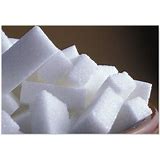 Glucose is a type of sugar that is in the blood. Glucose comes from carbohydrate foods and is the main source of energy used by the body. Insulin, a hormone produced by the pancreas, helps the body’s cells use the glucose.
Glucose is a type of sugar that is in the blood. Glucose comes from carbohydrate foods and is the main source of energy used by the body. Insulin, a hormone produced by the pancreas, helps the body’s cells use the glucose.
When we eat, the blood glucose level goes up. This increase signals the pancreas to release insulin so that the blood glucose levels do not get too high. Levels that are too high (hyperglycemia) over time cause damage to kidneys, blood vessels, eyes, and the cardiovascular system.
Blood glucose tests check for diabetes. The most common is the eight-hour fasting blood sugar (FBS). A reading between 70 and 100 is good. (The units are mg/dl, which is milligrams per deciliter). Above 100 is reason for concern.
The other end of the spectrum is hypoglycemia, or not enough sugar. Dangers include seizures, unconsciousness, and brain damage.
Many people avoid too much sugar for a good reason. Eating too much sugar is a sure way to gain weight. But there are several other sound reasons to keep blood sugar levels in check.
Too much sugar from too many sweets ages the body in several ways. Too much sugar means a shorter life span. Too much sugar speeds up the aging process and makes the skin look older. Excessive sugar is not good for healthy teeth.
Researchers recently found a link between blood sugar and Alzheimer’s disease. High blood sugar levels lead to a decrease of brain activity in the hippocampus area of the brain. A decrease in brain activity can make Alzheimer’s worst.
So, in short, the answer is yes! Too much sugar in the blood is bad for you, and yes, too much sugar increases aging. Sometimes it seems that life is just not fair. Many is the person that have asked himself/herself, “Why does something that tastes sooo good, like fudge, be sooo bad for you”. Perhaps it comes down to moderation. One piece of fudge, OK. Two pieces, too much.
Sources: WebMD and a local doctor.
